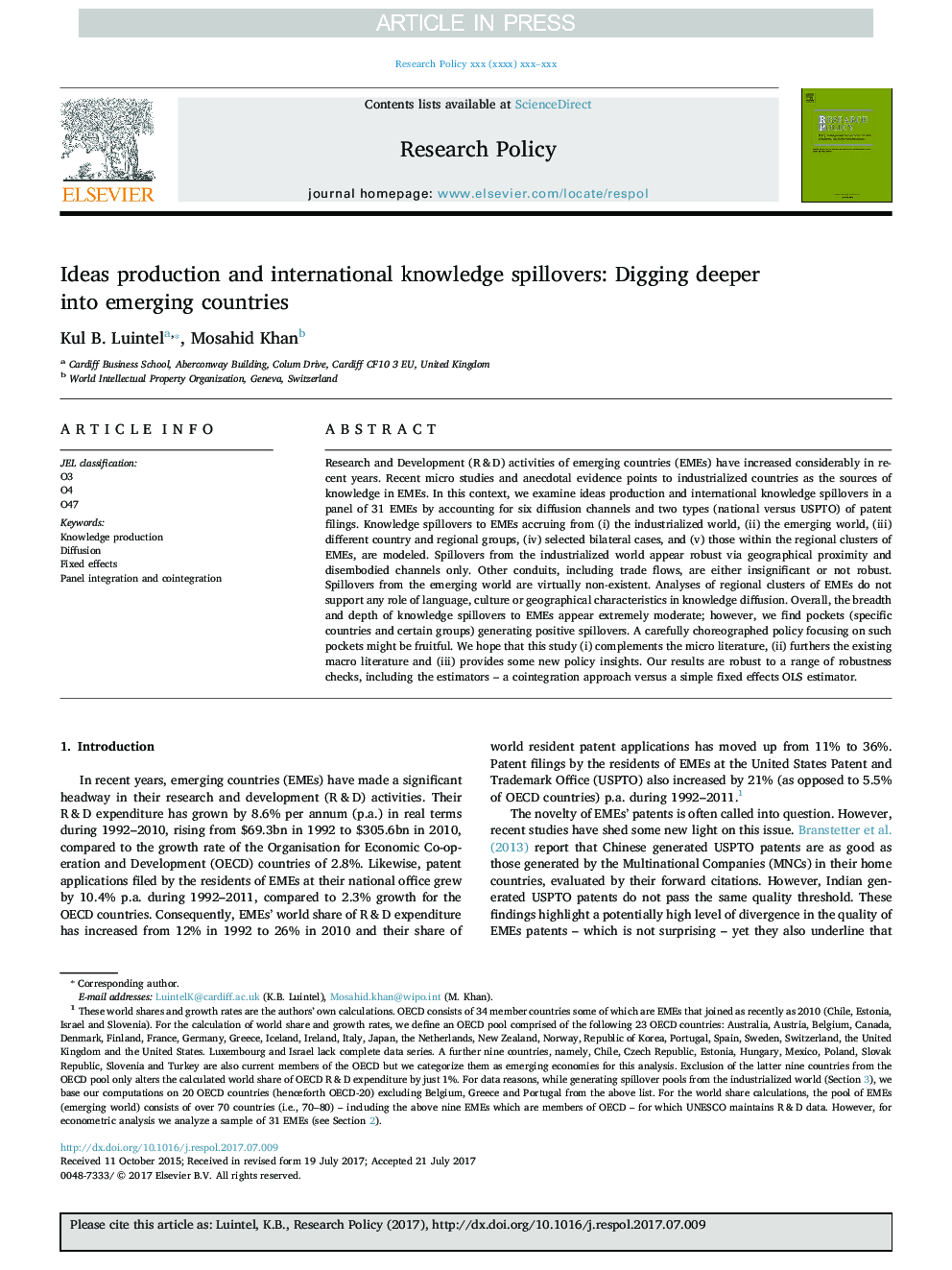| Article ID | Journal | Published Year | Pages | File Type |
|---|---|---|---|---|
| 5103822 | Research Policy | 2017 | 17 Pages |
Abstract
Research and Development (R&D) activities of emerging countries (EMEs) have increased considerably in recent years. Recent micro studies and anecdotal evidence points to industrialized countries as the sources of knowledge in EMEs. In this context, we examine ideas production and international knowledge spillovers in a panel of 31 EMEs by accounting for six diffusion channels and two types (national versus USPTO) of patent filings. Knowledge spillovers to EMEs accruing from (i) the industrialized world, (ii) the emerging world, (iii) different country and regional groups, (iv) selected bilateral cases, and (v) those within the regional clusters of EMEs, are modeled. Spillovers from the industrialized world appear robust via geographical proximity and disembodied channels only. Other conduits, including trade flows, are either insignificant or not robust. Spillovers from the emerging world are virtually non-existent. Analyses of regional clusters of EMEs do not support any role of language, culture or geographical characteristics in knowledge diffusion. Overall, the breadth and depth of knowledge spillovers to EMEs appear extremely moderate; however, we find pockets (specific countries and certain groups) generating positive spillovers. A carefully choreographed policy focusing on such pockets might be fruitful. We hope that this study (i) complements the micro literature, (ii) furthers the existing macro literature and (iii) provides some new policy insights. Our results are robust to a range of robustness checks, including the estimators - a cointegration approach versus a simple fixed effects OLS estimator.
Related Topics
Social Sciences and Humanities
Business, Management and Accounting
Business and International Management
Authors
Kul B. Luintel, Mosahid Khan,
